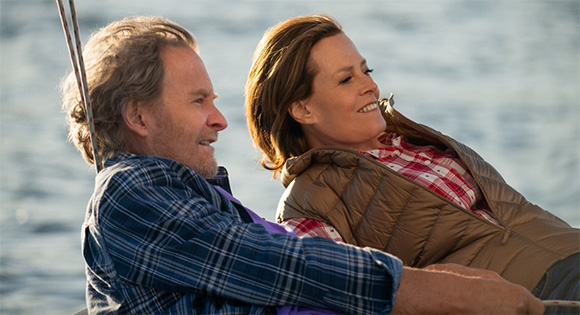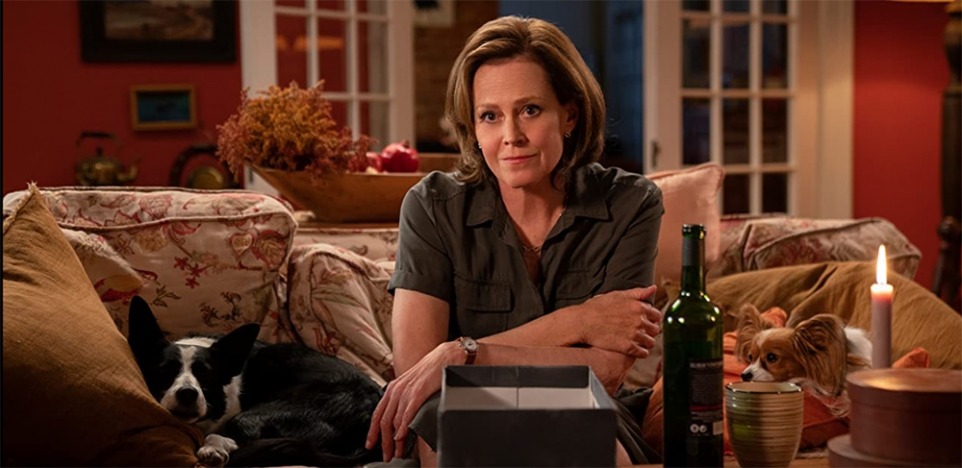“Alcoholism . . . and other addictive behavior are physical and physical symptoms of a deeper psychospiritual disease, a state of mind that all human beings all share. The real disease from which almost all of us suffer is the disease of playing God, of thinking we are or should be in control of what happens to us is life.”
— Rami Shapiro in Recovery — The Sacred Art: The Twelve Steps as Spiritual Practice
Hildy Good (Sigourney Weaver) is a 60-something real estate agent in a small town on Boston’s North Shore that is going through many changes as wealthy hedge funders are moving in and changing the nature of the area. Local businesses are being replaced by national chains.
Hildy prides herself on knowing the townsfolk, the gossip, and the intrigue of the place. But perhaps the thing that bothers her the most is that eight months ago her two grown daughters (Rebecca Henderson and Molly Brown) staged an intervention in order to compel their mother to stop drinking.

Even with their support, along with that of her ex-husband (David Rasche), her psychiatrist (Rob Delaney), and her former lover (Kevin
Kline), Hildy fails her rehabilitation program and all the vows she makes to change her behavior. Another roadblock is that her success is threatened by an aggressive real estate agent (Kathryn Erbe) who was her former protégé.
The Good House is directed by Maya Forbes and Wallace Woldarsky based on Ann Leary’s novel. Sigourney Weaver gives a many-colored and multi-textured performance as a woman driven by what Arthur P. Ciararmicoli, a clinical psychologist and Instructor of Psychology at Harvard Medical School calls “performance addiction.” Individuals caught up in this syndrome believe “they must go faster, try harder, be more dedicated, and make more sacrifices.” It is sad to watch Hildy drain her energy on the demon of perfection and then to plunge again and again into her addiction to wine. The end result is the same: “You can strive but never arrive.”
